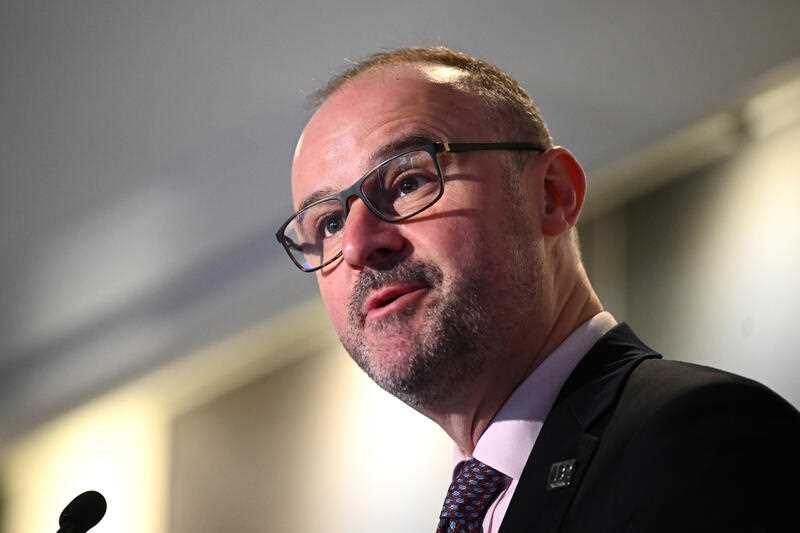Intersex rights against controversial medical intervention have been promised for the first time in Australia.
The ACT government introduced a bill on Wednesday to protect the medical rights of intersex people.
Malta, Portugal, Germany and Iceland are some of the handful of jurisdictions to have passed similar reforms.
Intersex people are born with variations in sex characteristics where genitals or features like breasts or facial hair do not fit medical and social norms for female or male bodies.
Babies displaying intersex characteristics are often subject to irreversible surgeries for the purpose of making their appearances more typical.
Families are also told to put their children on hormone treatment to facilitate typical female or male development.
But those affected by medical intervention have reported numerous lifelong health issues like poor sexual function, according to an Australian Human Rights Commission report.
The report recommended back in 2021 that new legislation needed to be made to protect intersex children, given a baby cannot consent to surgery.
“It has long been recommended that governments take action on irreversible and non-urgent procedures to be deferred until the person is old enough to be able to decide for themselves what is done to their bodies,” ACT Chief Minister Andrew Barr said on Wednesday.
The bill is part of a significant reform with the state government investing $2.6 million over four years.
If passed, new services will support a decision-making framework for families of intersex children, an establishment of a specialist unit in the Canberra Hospital, and training packages for health professions.
The proposed legislation has been welcomed by intersex advocates who say it will allow intersex people to take charge of their lives.
“Our bodies don’t need to be forcibly changed,” intersex advocate Steph Lum said.
“I would certainly never choose to have been born any differently.”
Other governments will be called on to adopt similar legislation to create safeguards for future intersex people, an Intersex Human Rights Australia spokesperson said.
“What I hope for with the legislation is stopping a dripping tap,” Cody Smith said.
“If no intersex people are being harmed then we can really start to heal as a community and start to thrive without just having these tragic stories of trauma.”
Intersex International Australia (2014) suggests that people with intersex variations make up 1.7% of births, but estimates range from 1 in 2,000 births (0.05%) to 8 in 200 (4%), and exact figures are unknown.
By Joanna Guelas in Canberra
Canberra Daily is keen to hear from you about a story idea in the Canberra and surrounding region. Click here to submit a news tip.



